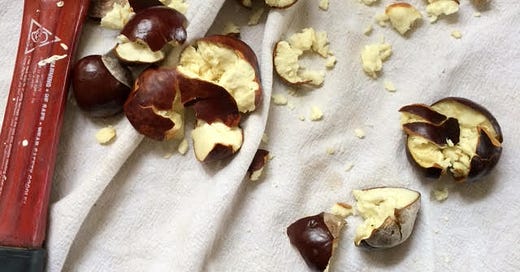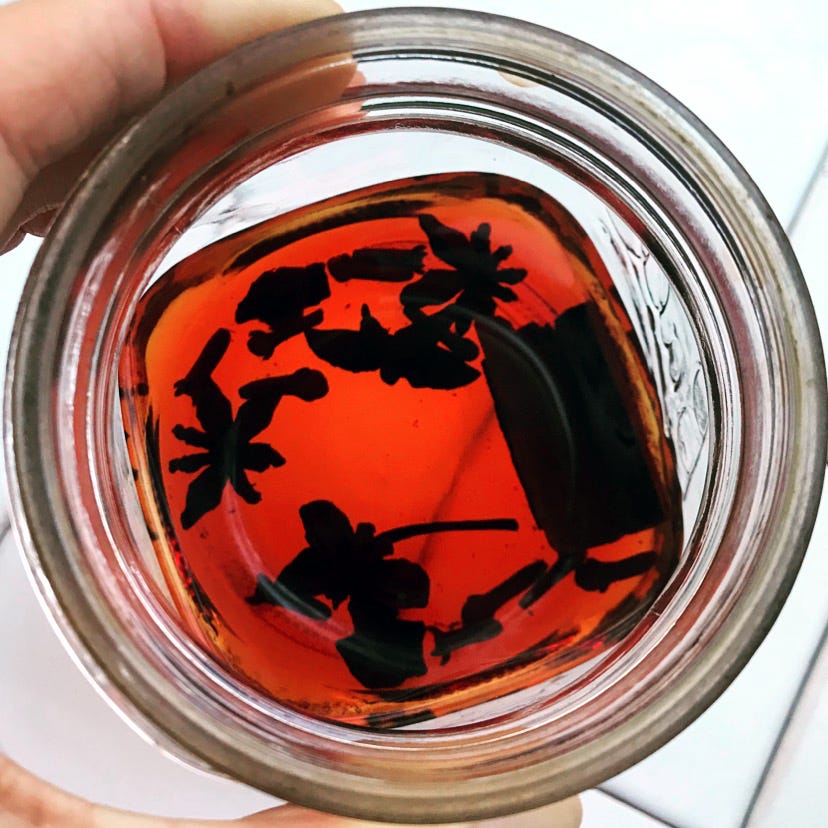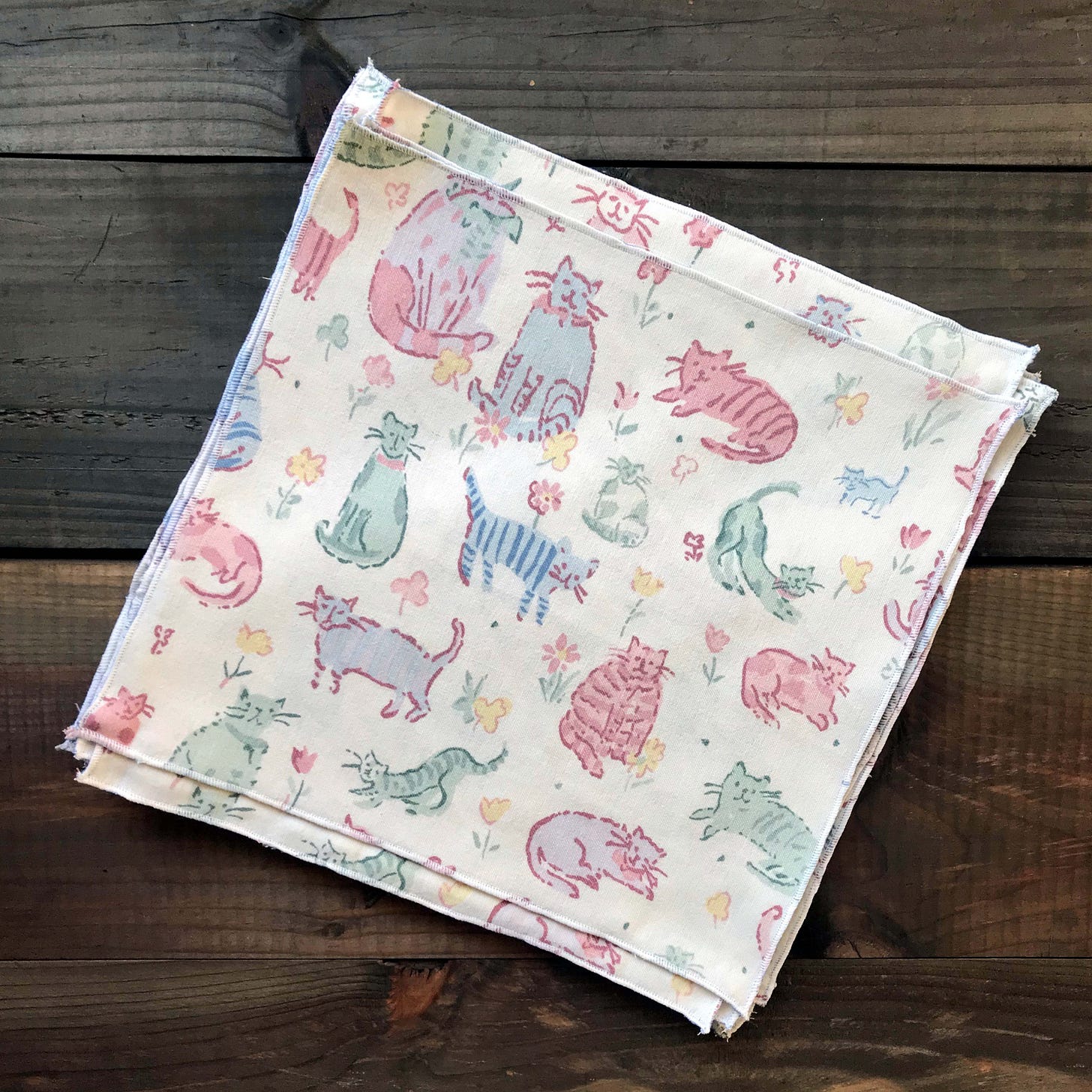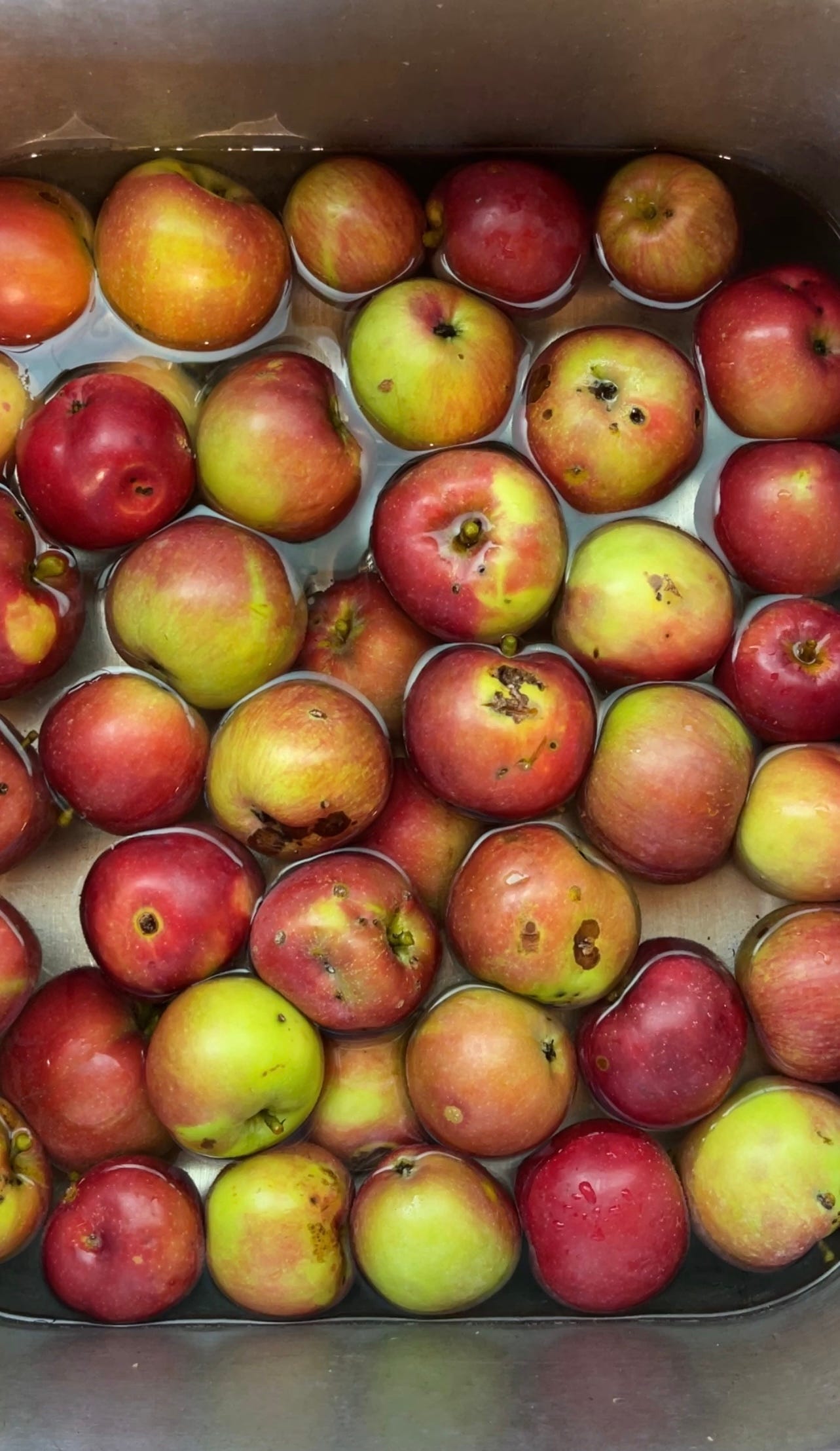Reach into the kitchen cupboards for most of what you need to make these everyday products. Save money, boost your self-sufficiency and refuse the fossil-fuel-derived plastic that commercial versions of these products are typically packaged in.
Mouthwash
Now that we're getting out more and socializing (I hope), it seems like a good time to share my simple mouthwash recipe.
To make it, combine several whole spices with vodka, let that sit for a month and dilute before using the mouthwash. Skip the plastic bottles of commercial, neon-colored mouthwash and their industrial ingredients.
People occasionally ask for a non-alcoholic version of this and apparently food-grade glycerine will work but I haven't tried it myself. If you have, please leave a comment about it.
Deodorant
What a hot summer! My homemade deodorant helped me—and those standing near me—get through it. It contains just three ingredients: baking soda, cornstarch and, to render a creamy consistency that makes application easy, coconut oil. If you are sensitive to baking soda, swap it out for arrowroot powder. If you’re not sure if you’re sensitive to baking soda, test a tiny amount of the deodorant on an underarm.
Reusable handkerchiefs
Maybe we will have a normal cold and flu season this year, with mostly the common cold going around...
I finished the above handkerchiefs several years ago. I cut squares out of my daughter's old, worn, flannel cat sheets and sewed a rolled hem around the edges with my serger. (MK's grandmother gave her these sheets when she was about 7. She's now 27!)
If you don't have any flannel or don't want to sew, cut up old t-shirts. Because cut edges of t-shirt material won’t fray, they don’t need finishing.
Blowing your nose into flannel or cotton feels so much nicer than blowing into paper tissues, no matter how pulverized the tree pulp (which might be virgin pulp by the way!) or how many chemicals manufacturers add to it. When your hankies are dirty, toss them in the washing machine. They take up so little space. And they only get softer with age.
Save your nose, save trees and save money!
Label remover
Say bye-bye to commercial Goo Gone and reach for cooking oil instead to dissolve sticky adhesive and remove gunk from hard surfaces such as glass, ceramic and metal. You need lots of jars when you cut your waste, for storing food, shopping for food, packing food for office lunches, fermenting food and so on and oil helps you remove any labels easily.
Smear the label with oil and wait overnight. Peel off what you can. You may need to reapply more oil. If you have some olive oil that has gone off, save it for removing labels.
Go here for more info on de-labeling and de-smellifying glass jars.
Produce wash
When my daughter MK was a broke student, she couldn't afford to buy much organic food. She bought less expensive, factory-farmed fruit and vegetables at the discount grocery store—the non-organic produce grown in monocultures and sprayed with synthetic pesticides.
But she told me about a simple trick that removes some of the pesticides from the surface of produce (please note I wrote some!): In a bowl, mix together about one tablespoon of baking soda with six cups of water. Add the produce. Wait about 15 minutes. Drain. Rinse.
Go here for more information, including a link to a study of this solution.
Dish soap
After I broke up with plastic, friends wanted to know what I would use to wash dishes. This was before dish soap blocks become popular here in the US and pretty easy to find (online, at least). As with most consumer products, you can make your own dishwashing liquid pretty easily, but without the artificial fragrances, colors and other chemicals—and for less money.
Chestnut laundry soap
Did you know? You can make a mild laundry detergent from horse chestnuts.
Horse chestnut trees grow in temperate areas of North America, Europe and Asia. Early fall is the time to forage for them. Crush them, blend them, soak them and strain them for washing your clothes.
Go here for the instructions for making horse chestnut detergent.
Use what you have, save money, have fun!








There are also saponins in ivy and you can make a mild detergent from that. Very economical and plastic free!